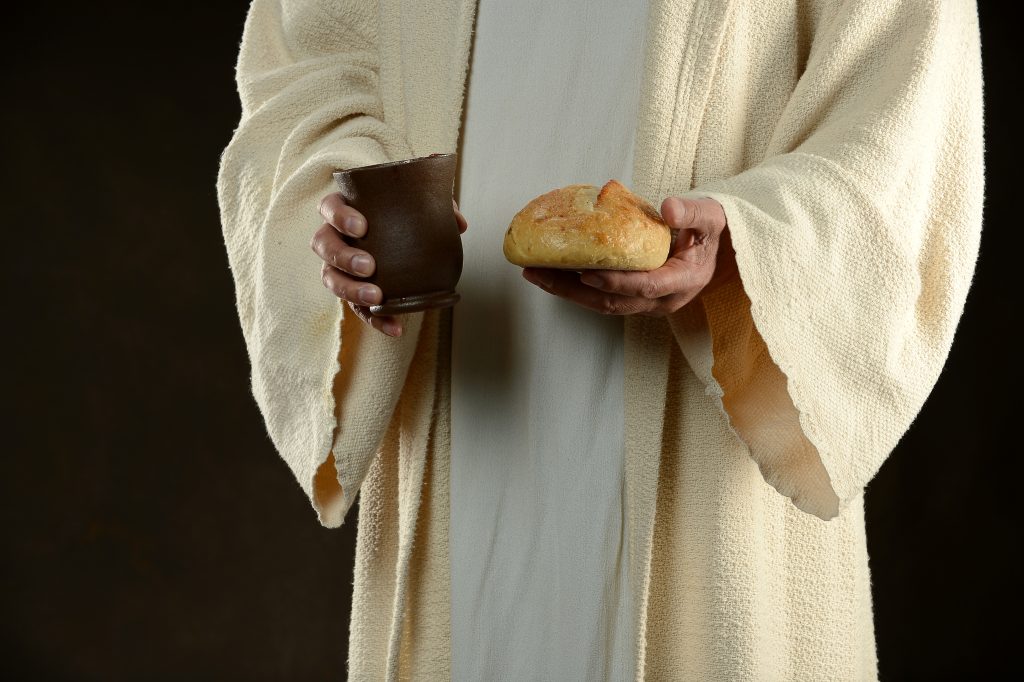
Credit: Dollar photoclub
When Americans in the early 21st century think of meditation and other spiritual disciplines for training one’s awareness, we think of Buddhism. American Buddhist teachers have called attention to the fact that everyones’ minds are like a tree full of jumping monkeys. In any given moment we are not really present, but rather worrying and obsessing about yesterday and tomorrow. We are distracted, multi-tasking creatures of habit who suffer by being inwardly divided. This is why there are popular Buddhist meditation centers in every American city. We are looking for relief from the chaos and violence in our own minds. Most Americans don’t know that we Christians have inherited many spiritual tools to help us break through the cloud of gnats and mosquitoes in our minds that we call obsessive thinking, worry, anxiety and habitual fear.
For example, one of the Christian Desert Fathers, the monk Evagrius Ponticus (345-399 A.D.), taught a form of hesychasm (Greek: quiet) in which one comes to see the conditioned links between thoughts and emotions, and then, through meditation and prayer, finds a deep calm called apatheia. In apatheia the mind is integrated and purified of its naturally tumultuous activity, allowing one to simply “be” in God’s presence or to pray without distraction. Being in this sacred Presence does not require thinking, speaking, looking into an icon, or reading scripture. These activities may help to settle one’s mind and heart, but in the contemplative Christian tradition we eventually let go of all sensual and cognitive bridges to the transcendent Presence. Monks such as Evagrius believed that virtue in one’s speech and behavior would follow freely from a mind that is emptied of distracting thoughts. Some other Christian contemplatives would describe this emptying as a kind of on-going detachment from all embodied experiences. It’s not that thinking goes away–sometimes our thoughts may bring blessings or healings!–but that we experience an inward spaciousness so that we are not so caught up in our own thoughts and worries. When we have this kind of detachment, we are less likely to mistake our thoughts and opinions for our present reality, and we are less likely to impose our opinions on others.
The methods by which one trains and purifies the mind were codified by Evagrius’s student, St. John Cassian (360-435) in his Conferences, and taken up by St. Benedict, Eastern Orthodox theologians such as Symeon the New Theologian, the German friar Meister Eckhart, the anonymous author of the medieval Cloud of Unknowing, St. John of the Cross and, most famously, in the works of 20th century’s Thomas Merton. Books by, and about, these authors are readily available online and in libraries.
In Philippians (2:5ff), St. Paul writes that Jesus “emptied himself ” (Greek: kenosis), taking the form of a servant. Jesus’s many acts of service and healing did not come from a mind that was thinking and analyzing about what to do or say, but rather from a mind that had emptied itself into God. Jesus’s mind was emptied of self-reference and the centripetal force of merely personal preference. In his “emptiness,” God’s infinite love could shine through Jesus’s human form unencumbered. Through him, the invisible could become visible. In this way, the purified Christian mind is analogous to Tibetan Buddhist emptiness and to Zen’s “no-thought-ness” (Jap. munen). Visible, tangible compassion arises out of nothing, out of the emptiness that circulates in God. This spiritual emptiness is not a shallow nihilism, a nonchalant rejection of ultimate meaning, but rather a deep focused detachment of mind and heart that has been shaped within a profound ethical context. We are created in the image and likeness of God. Therefore, when we detach from our conventional opinions and judgments, our emptiness allows all the gifts of the Spirit to flow forth within and around us.
The medieval Dominican friar Meister Eckhart taught that detachment (emptying ourselves) from every self-centered affinity and fear is such an important spiritual practice that he, with tongue in cheek, put it above love. Even our ideas about God can lead us away from God, so we must walk lightly among them too. As he says,
We ought not to have or let ourselves be satisfied with the God we have thought of, for when the thought slips the mind, that god slips with it. [This discipline] requires effort and love, a careful cultivation of the spiritual life, and a watchful, honest, active oversight of all one’s mental attitudes toward things and people. It is not to be learned by world-flight, running away from things, turning solitary and going apart from the world. Rather, one must learn an inner solitude, wherever or with whomsoever he may be. (Raymond Bernard Blakney, tr. & ed. Meister Eckhart: A Modern Translation. New York: Harper & Bros., 1941, p. 9.)
One shouldn’t forget that Eckhart was steeped in the Gospels and living in Christian community when he wrote this. He may not have been thinking about God, but he was continuously surrounded by and digesting the words, images and gestures of the Christian life. Still, he was convinced that God is greater than any picture or feeling about God. Trusting in God’s invisible presence one’s mind comes to a still point of presence he called Gelassenheit, a complete letting-be.
From the Desert Fathers and from the Greek philosophers before them, Eckhart inherited the insight that our eyes must be without any color in order to be able to register all colors. Dwelling in this detachment from our personal ideas about reality, we come to a consciousness that St. Paul described when he declared, “it is no longer I who live, but it is Christ who lives in me” (Galatians 2:20). Christ has colorless eyes. And when St. Paul said that “we have the mind of Christ” (1 Cor 2:16) he meant all of us who follow the path into the ultimate reality of Love. We are not Jesus, but we are like him. We too can have the “empty” or “detached” mind and heart of Christ that sees all colors and registers all suffering and joy. Eckhart describes the Christ-mind’s way of knowing as “daybreak knowledge” in which all things are perceived without distinction as coming forth from, and going to, the light of God.
Similarly, in the 16th century, St. John of the Cross counsels that after, and in the midst of, our liturgies, hymns and discursive prayers, we Christians must also occasionally enter a dark night of the senses and soul, emptying ourselves of our self-centered preferences and ideas about God and everything else. Jesus modeled this discipline of self-emptying love for us, but he did not do it instead of us. We ourselves need to clear our minds of self-centered and habitual thinking. Because Jesus embodied the Creator’s free Presence, we receive this Presence when we love Jesus. The practices of contemplative prayer, liturgical experience, and silent meditation, help us to become inwardly detached in an ambience of love that continuously connects us to others and to creation. Our contemplative tradition tells us that when we open ourselves to the Divine movement within, the Holy Spirit will help us do this work. We do the work of creating a space within us for God, and then trust that the Holy Spirit will do the work in us: as we flow out of ourselves, the Holy Spirit flows in.
Christian contemplatives and mystics hold up the possibility of unity with God in our minds and hearts. They tell us that we are coming close to this unity when we empty ourselves of all the labels we paste onto others and our own experience. St. John of the Cross tells us that this emptying is a kind of “darkening” whereby we become naked before God and with God. Paradoxically, it is a darkening that brings Light. In this dark night of the mind the invisible God of love transforms us, freeing us from our cocoons of fear, anxiety and blame. John’s contemporary, St. Ignatius of Loyola, called this Christian practice Indiferencia or “holy indifference”. In this view, one stops trying to control others or God. One trains one’s mind to seek God in all things evenly, to have no personal preference for where God will show up. This practice of emptying is quite radical for some contemplatives like Meister Eckhart and St. John of the Cross. They even counsel us to let go of our “religious” and “spiritual” thoughts about God. So, Eckhart says, sometimes we must let go of God, for God’s sake.
Please see the Empty Bell Three Ways to Pray page for practical suggestions about how to empty oneself during Christian meditation.
© Robert A. Jonas, 2006-2023 (reprint by written permission only)
